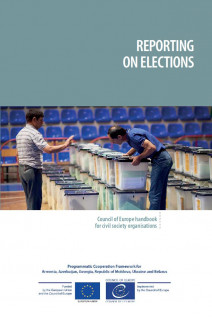
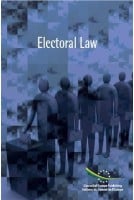


Elections are a pre-condition for democratic governance since it is through them that the citizens of a country choose freely, and on the basis of the law, the persons that can legitimately govern in their name and in their interest.
The right to free elections, as enshrined in the Article 3 of the Protocol to the European Convention on Human Rights, is a “fundamental principle in a truly democratic political regime”. It comprises a series of safeguards and procedures that ensure respect for active and passive electoral rights and the conduct of genuine free and fair elections. Civil society has a distinct role to play since it observes the electoral process and contributes to the development of national electoral procedures through advice and recommendations.
The Council of Europe handbook Reporting on elections aims to help observers become more efficient and to produce more effective reports, specifically focusing on the reporting of core team members. At the same time, it also covers the reporting of long- and short-term observers. It deals mainly with final election reports and reports/statements on preliminary findings, while also providing insight into interim reports and ideas for ad hoc reports and press releases, in addition to tips on how to follow up on recommendations.
This handbook gives an overview of the planning of observation activities from a reporting perspective: the scope of election observation, assessment of the organisations’ reporting capacities, key observation principles and what observers could focus on, how to assess the reporting capacities of one’s own organisation, and how to conduct training on reporting.
Contents
Foreword
Acknowledgements
Introduction
Chapter 1. Electoral cycle and reporting
1.1. Election observation as part of the electoral cycle
1.2. Reporting principles
1.3. Types of reporting
Chapter 2. Planning the observation from a reporting perspective
2.1. Scope of the domestic election observation
2.2. Objectives of the domestic election observation
2.3. Realistic and coherent work plan based on the organisation’s capacities
2.4. Training plan on reporting
2.5. Communication plan
Chapter 3. Internal reporting
3.1. Internal reporting plan
3.2. Definition of roles
3.3. Reporting forms
3.4. Training tips
3.5. Possible challenges and constraints
Chapter 4. External reporting
4.1. Training of the Core Team
4.2. Structure of external reports
4.3. Reporting tips
4.4. Reporting topics and checklists
4.5. External communication of the report
4.6. Possible challenges and constraints
4.7. Advocacy/follow-up to the recommendations
Annexes
Annex 1 – Abbreviations and acronyms
Annex 2 – Definitions
Annex 3 – Reporting forms (examples)
Annex 4 – Bibliography
Télécharger un extrait (1000)

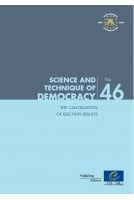
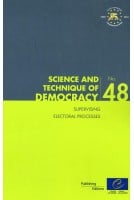
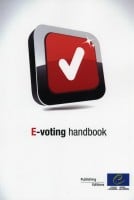



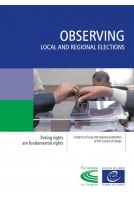




Elections are a pre-condition for democratic governance since it is through them that the citizens of a country choose freely, and on the basis of the law, the persons that can legitimately govern in their name and in their interest.
The right to free elections, as enshrined in the Article 3 of the Protocol to the European Convention on Human Rights, is a “fundamental principle in a truly democratic political regime”. It comprises a series of safeguards and procedures that ensure respect for active and passive electoral rights and the conduct of genuine free and fair elections. Civil society has a distinct role to play since it observes the electoral process and contributes to the development of national electoral procedures through advice and recommendations.
The Council of Europe handbook Reporting on elections aims to help observers become more efficient and to produce more effective reports, specifically focusing on the reporting of core team members. At the same time, it also covers the reporting of long- and short-term observers. It deals mainly with final election reports and reports/statements on preliminary findings, while also providing insight into interim reports and ideas for ad hoc reports and press releases, in addition to tips on how to follow up on recommendations.
This handbook gives an overview of the planning of observation activities from a reporting perspective: the scope of election observation, assessment of the organisations’ reporting capacities, key observation principles and what observers could focus on, how to assess the reporting capacities of one’s own organisation, and how to conduct training on reporting.
Attention, en vertu de nos conditions générales de vente, l'achat des PDF/epub est réservé aux particuliers.
